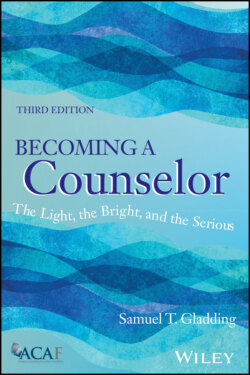Читать книгу Becoming a Counselor - Samuel Gladding T., Samuel T. Gladding - Страница 21
Chapter 9 An Encounter With the Klan
ОглавлениеI can still remember hearing the car horns in the distance. They were coming. The Ku Klux Klan was holding a rally on the courthouse square of my hometown of Decatur, Georgia, and they were driving up Church Street in front of our house as part of their route. I was 10 years old, and up to that point my family had tried to protect me as much as possible from the sounds and the sights of the divided society that was the South of the 1950s. That summer day was no exception as my father quickly shooed me inside. Innocence was about to be lost, and he knew it. Yet he tried as best he could to keep my brother, my sister, and me as far removed as possible from the evil that was to pass before us.
In retrospect, I am sure he thought of sending us away for the day. However, he probably knew that such a tactic would backfire later. There was no escape from the pervasiveness of racism that dominated Southern culture at the time. It was simply accepted and legally codified. Blacks and Whites were different races that should be kept separate from each other because Blacks were perceived as inferior. That view covered everything in its day like kudzu and strangled reasonable discussions and change. So, as the car horns became louder and the Klan caravan drew closer, I was confined to the screened-in front porch of our house to watch silently a noisy parade full of people in hoods waving Confederate battle flags and occasionally shouting words that were offensive. The instructions from my father were clear: “You may look,” he told me, “but you must remain as still as the humid air.”
My wait was not long in coming, but while I sat, I thought as well as anticipated. I had read about the Klan and its origin. I knew that Nathan Bedford Forrest had founded the Klan in Tennessee after the Civil War to suppress the freedom of Blacks and keep them fearful and subservient to Whites. I had read of a recent Klan rally and cross burning at nearby Stone Mountain on a Saturday night in the Sunday edition of the Atlanta Journal-Constitution that I helped my brother deliver. I was not as naive as my father thought or wished. Yet I did not know anyone who was an affiliate of or advocate for the Klan or its causes. That made sense because the group was surrounded by secrecy. You became a target of its wrath only if you spoke out against what it tried to enforce by intimidation, beatings, and murder. So I sat quietly and watched as the first cars came by. I was to see what I had read about up close and face to face.
However, what happened was different from what I had envisioned. The distance from our porch to the street was about 50 feet, so I had a clear view. What surprised me was what I saw. Before me were people in vehicles who were faceless in the sense that I could not see who they were. It was like Halloween in the summertime. Over their heads were white hooded sheets that prevented anyone from identifying them. From the holes in their masks I caught glimpses of faces—eyes, noses, and mouths—but nothing distinctive. Even more striking was that as these people passed our house, they not only blew their horns but also waved. I was confused. I thought evil should look and act malevolent. Here before me was the personification of prejudice waving enthusiastically and in a friendly manner. Something was disturbingly wrong with the picture.
However, I did as instructed. I did not move a muscle. The whole parade lasted only about 5 minutes. Then the noisy, white-robed, faceless people disappeared from my immediate senses and became lodged in my memory.
In reflecting on this moment in time, I realize that day and my internal reaction to the events before me have continued to have an impact on my life both personally and professionally. For one thing, I saw then, and see even more clearly now, that racism is often faceless and parades around as if it were something else. The camouflage of racism and its pretentious nature make it elusive and difficult to get a handle on—let alone address constructively.
